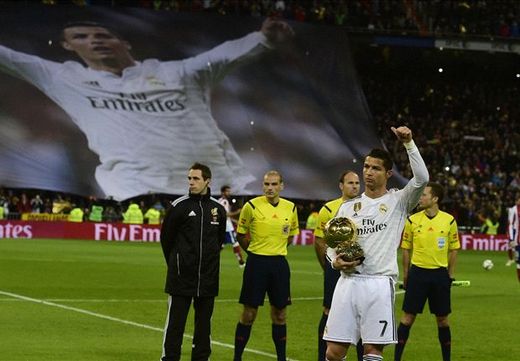News
Ronaldo can learn from Giggs in quest for eternal success

The Portuguese star turned 30 on Thursday, but celebrations will be tempered with the knowledge that footballers find it tougher beyond their twenties.
He’s widely renowned as the perfect footballing specimen, with the superb physique, the magnificent pace and power, and the unquenchable thirst for hard work that has seen him develop into the game’s greatest athlete.
But as Cristiano Ronaldo turns 30, new challenges appear on the horizon.
In recent times, the Real Madrid superstar’s level has been so consistently high that he has been virtually unstoppable. But his body – currently at peak physical condition – will ask him new questions in the years to come as the passage of time slows him down in a way countless opponents have failed to.
There are numerous examples of players who have been at the very height of their footballing powers when turning 30, only for nature to soon get the better of them. Some of history’s most legendary footballers have suffered a speedy nosedive from the top of the sport after saying goodbye to their twenties.
Unlike greats such as the Brazilian Ronaldo and Diego Maradona, Cristiano has been lucky enough not to have suffered a major injury in his career, and leading chartered physiotherapist Mark Buckingham tells Goal that such fortune could have a big say in the Portuguese attacker extending his career into his late-30s.
“If you’ve had something like an anterior cruciate ligament rupture or a big joint injury then there is inevitably going to be wear and tear on the joint, however well you’ve rehabilitated from it and however well the operation went,” he explains.
“There is always an increase on wear and tear in that area, so the fact that Ronaldo has been lucky – despite all the clatterings he’s taken on the pitch – not to pick up a major injury, bodes very well for him.
“He hasn’t torn a cartilage that we know of, which is key because even if you’ve had just a small tear in your early twenties you always see an earlier onset of arthritic change in that joint and they just haven’t got the shock absorbency that the joint is designed to have.”
Yet Buckingham, who has worked with British Athletics for 16 years and was a key component of distance runner Paula Radcliffe’s later career, adds that time will always catch up with players regardless of their medical history.
“There is a big genetic factor, and a lot of that comes down to how quickly Ronaldo’s joints are wearing. Some people’s genetic make-up is not too bad and they haven’t suffered much wear-and-tear at all, but you can also get some people who have suffered a lot.
“There is also an impact on the extensibility and elasticity of their soft tissues, particularly tendons and muscle tissue. As we trundle into our thirties, they become less elastic and are more easily strained and torn.
“Ronaldo’s got that fantastic physique but as you get into your thirties your levels of growth hormone start to diminish, which means that your metabolism starts to slow down a bit and therefore you store more fat and your muscle bulk starts to reduce somewhat.
“Those are factors that he can’t necessarily mitigate against. Beyond 30, your cardiovascular fitness levels naturally drop by five per cent or so. This might not sound a lot but when you’re operating at the level he is operating at, it can make a huge difference between getting to a ball and not getting to a ball.
“People like Ryan Giggs reduced the amount of impact training they did. He did a lot more swimming and things like yoga to maintain as much flexibility as he could.”
Ronaldo's style of play and position on the pitch means physical attributes are hugely important to his success. A player like Zinedine Zidane, for example, was never reliant on raw speed, so the impact of his ageing process was reduced and he retired on his own terms. But the Brazilian Ronaldo, whose explosive acceleration and ability to resist challenges were key facets of his game, suffered a sharp decline once his pace was diminished.
Ronaldo, of course, could follow Giggs’ example by ‘reinventing’ himself in a slightly altered position in order to extend his career. But Buckingham believes that the former Sporting Lisbon and Manchester United man will need at some stage to cut down on the number of minutes he demands to play.
“He’s played an awful lot of matches in his life, dating right back to when he was playing on the streets of Madeira," Buckingham added. "So, while he’s had the advantage of not having an injury that’s kept him out for a year, he’s also not had the benefit of a year out resting which would have given the rest of his body that time off.
“At some point he will have to start being substituted around 60 minutes into games when his side are comfortable as a way of thinking longer-term. And there’ll be those lesser games which Real Madrid can get away with not playing him when a week on the beach will be a much better place for him to go.
“There is a lot of muscle memory involved and so far a player like Ronaldo, who has practised and practised and practised over the course of his life, those skill sets are so well established that he doesn’t need to keep repeating them in training. You just need to train smarter in order to reduce the wear and tear on your body.”
So while Ronaldo’s career should go on for many years yet, Real Madrid coach Carlo Ancelotti and his support staff would be wise to handle the three-time Ballon d’Or winner with care in the years to come.


